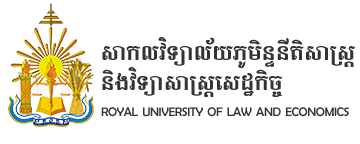Course: Business and Human Rights
Course Modalities: –Hourly Volume: 20 hours; –Scheduled: June; –Programs: International Executive Master in International Business Law (ULB), Year 1; International Master in Public International Law (Paris 8), Year 1. Course Overview: With the rise in the power and functions of corporations in a globalized economy, business enterprises are increasingly expected to bear human rights responsibilities beyond the goal of maximizing profit for shareholders. The UN Guiding Principles on Business and Human Rights (UNGPs) and various other regulatory initiatives reflect this social and legal expectation. Against this background, this course aims to enable students to explore the evolution of business and human rights (BHR) as a specialized field, assess its relationship with other notions such as corporate social responsibility (CSR), and examine critically various regulatory initiatives that seek to promote business respect for human rights. BHR in this course is taken in a broad sense to include both legal and moral/ethical responsibilities of business in the areas of human rights, labor rights, and the environment. After providing background related to the intersection of business and human rights, students will be exposed to various BHR issues falling within the three broad sets of questions: why should business enterprises have human rights responsibilities; what is the nature and extent of these responsibilities; and how could corporations be held accountable and victims are provided effective remedies for business-related human rights abuses. Cases and case studies from all over the world (including East Asia) will be used to inform the discussion. ⎫ Historical evolution of the BHR field against the backdrop of privatization of state as well as human rights in a globalized economy; ⎫ Comparing BHR with concepts such as CSR, responsible corporate citizenship, triple bottom line, and sustainable business; ⎫ Relation of BHR/CSR with corporate governance and company law, and role of business in achieving the Sustainable Development Goals; ⎫ Various justifications for the human rights responsibilities of business, e.g., social license, a risk management tool, the business case for BHR and the prisoner’s dilemma, ethical consumerism and sustainable investing social expectations; ⎫ Ascertaining the nature and extent of the human rights responsibilities of business: managing supply chains, conducting human rights due diligence, dealing with local differences, operating in conflict regimes or repressive regimes, and navigating through the web of legal/moral complicity in human rights abuses; ⎫ Review of selected BHR regulatory initiatives: corporate codes of conduct, Alien Tort Claims Act (the US), OECD Guidelines for Multinational Enterprises, ILO Tripartite Declaration, UN Global Compact, UNGPs, mandatory human rights due to diligence legislation, a proposal for a legally binding international instrument; ⎫ Corporate accountability and access to an effective remedy: various BHR litigation pathways and ways to overcome barriers experienced by victims in the litigation (the doctrine of forum non-conveniens and difficulties in piercing the corporate veil). Course Structure: Module 1: An insight into the corporation; Understanding BHR: the why what and how of BHR; Comparing BHR with CSR and other concepts such as corporate accountability, good corporate citizenship, triple bottom line, sustainable business, responsible business, and corporate philanthropy; BHR and sustainable development goals (SDGs); the Changing interface of states, corporations, law, and human rights against the backdrop of globalization; Privatisation of states and human rights; Extraterritorial human rights obligations of states; Foreign investment and a “race to the bottom”. Module 2: Justifications (ethical, social, legal and economic) for human rights responsibilities of business; Milton Friedman’s rebuke for CSR; The “business case” for BHR and the prisoner’s dilemma; BHR as part of a risk management mechanism; Social expectations rationale of the UNGPs; Redefining the purpose of the corporation; BHR’s entry into corporate law and international investment agreements; Corporate Human Rights Benchmark. Module 3: Ascertaining human rights responsibilities of corporations in the fields of labour rights, human rights and the environment; Positive vs. negative obligations; The “protect, respect and remedy” framework and the UNGPs; mandatory human rights due diligence (HRDD) initiatives in selected countries. Module 4: The responsibility/liability of a parent company for the conduct of its subsidiaries and suppliers; Complicity of corporations with state agencies in human rights abuses; Human rights responsibilities of corporations operating in conflict zones or repressive regimes; How to resolve business dilemmas faced by multinational corporations while operating in different countries. Module 5: Various avenues, venues, and means to promote corporate compliance with human rights; Efficacy of voluntary corporate codes; Role played by litigation under the Alien Tort Claims Act. Module 6: Regulatory initiatives introduced by OECD, ILO, and the UN: OECD Guidelines; ILO Tripartite Declaration; Global Compact; UNGPs; Proposed legally binding international instrument. Module 7: BHR litigation pathways; Corporate misuse of the principles of limited liability and separate personality; Parent company’s direct duty of care; Overcoming the corporate shield of forum non-conveniens (FNC). Assessment: The assessment of this course will have the following two elements:
- Class participation (30%) – participation in discussion during seminars and in-class exercises.
- Take-home examination (70%) – answering essay-type and hypothetical scenario-based questions.

 ភាសាខ្មែរ
ភាសាខ្មែរ
